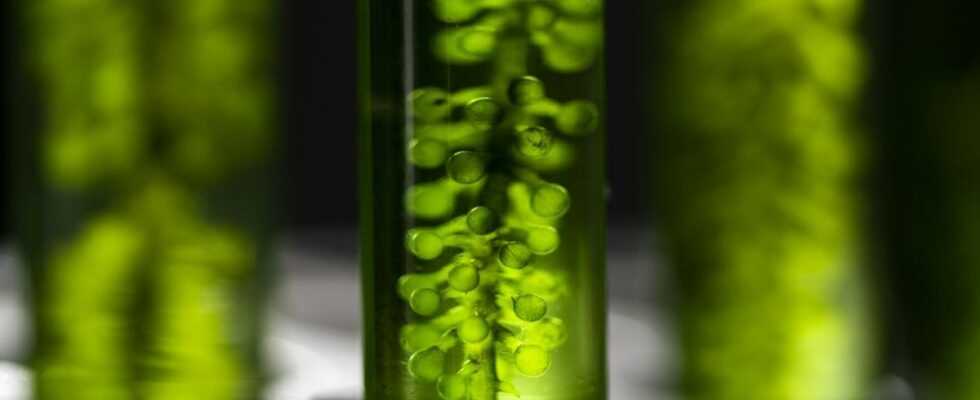2
Developed by researchers at the University of Cambridge, a process called “biophotovoltaic” would make it possible to generate electricity using the photosynthesis carried out by plants.
Energy production is one of the major challenges of our time. Although electricity consumption is not a problem in itself, limiting its impact on our environment is a completely different challenge.
Many companies are investing heavily in renewable energy (by choice or to reap the benefits), which at least helps to change things. In this context, “biophotovoltaic” is experiencing a certain boom. The principle is to produce energy through photosynthesis carried out by a micro-organism such as algae.
A seaweed battery
© Paolo Bombelli (Creative Commons)
For this experiment, researchers at the University of Cambridge enclosed blue-green algae (cyanobacteria) in a capsule the size of an LR06 battery, then exposed it to sunlight for several months without any other food source. for algae.
Thanks to the very modest energy produced of 0.3 microwatt/hour, they were able to continuously power an ARM Cortex-M0+ chip for six months and make it perform simple operations. Beyond the energy produced, it was the regularity with which it was produced that surprised the researchers. Indeed, thanks to the energy accumulated during the day, the “battery” worked even at night.
Very low yield
Of course, this concept is still far from any stage of commercialization, the efficiency being extremely low – 0.25% of solar energy is transformed into electricity.
On the other hand, researchers are attracted by the moderate costs of such a technique and, above all, its almost zero impact on the environment. Unlike batteries or conventional production solutions, such as photovoltaic panels, the use of algae is very environmentally friendly.
An application in the Internet of Things
For those who imagine using algae for their future RTX 4090, it would take almost 2 billion of these algae “batteries” to cover the needs of a PC. gaming mid-range.
Eventually, the researchers hope to offer chips powered by algae to meet the needs of small connected objects that are constantly multiplying everywhere in the house and elsewhere.
Remember that this is for the moment only a demonstration of technology and that many steps remain to be completed before a possible commercialization.
